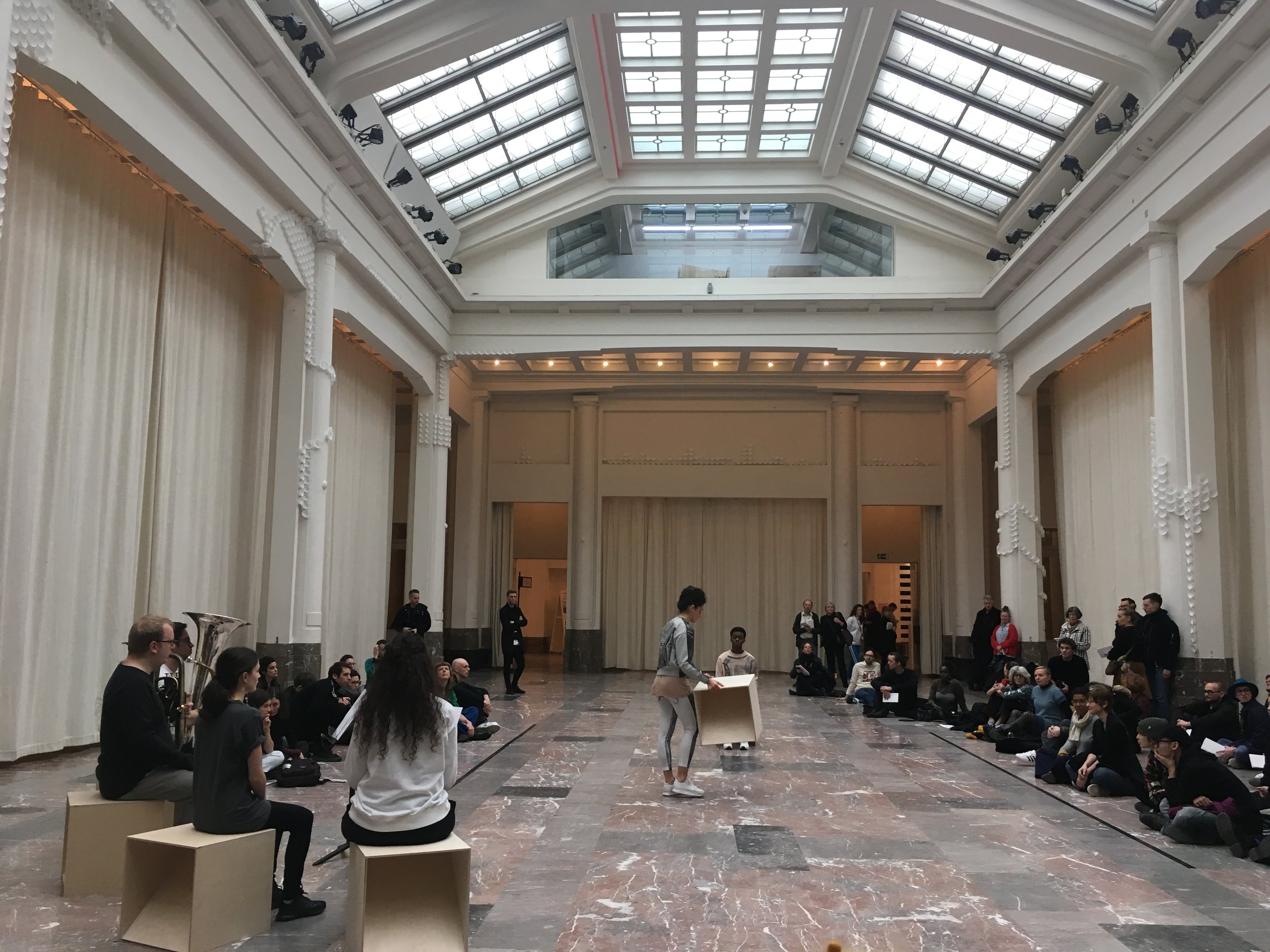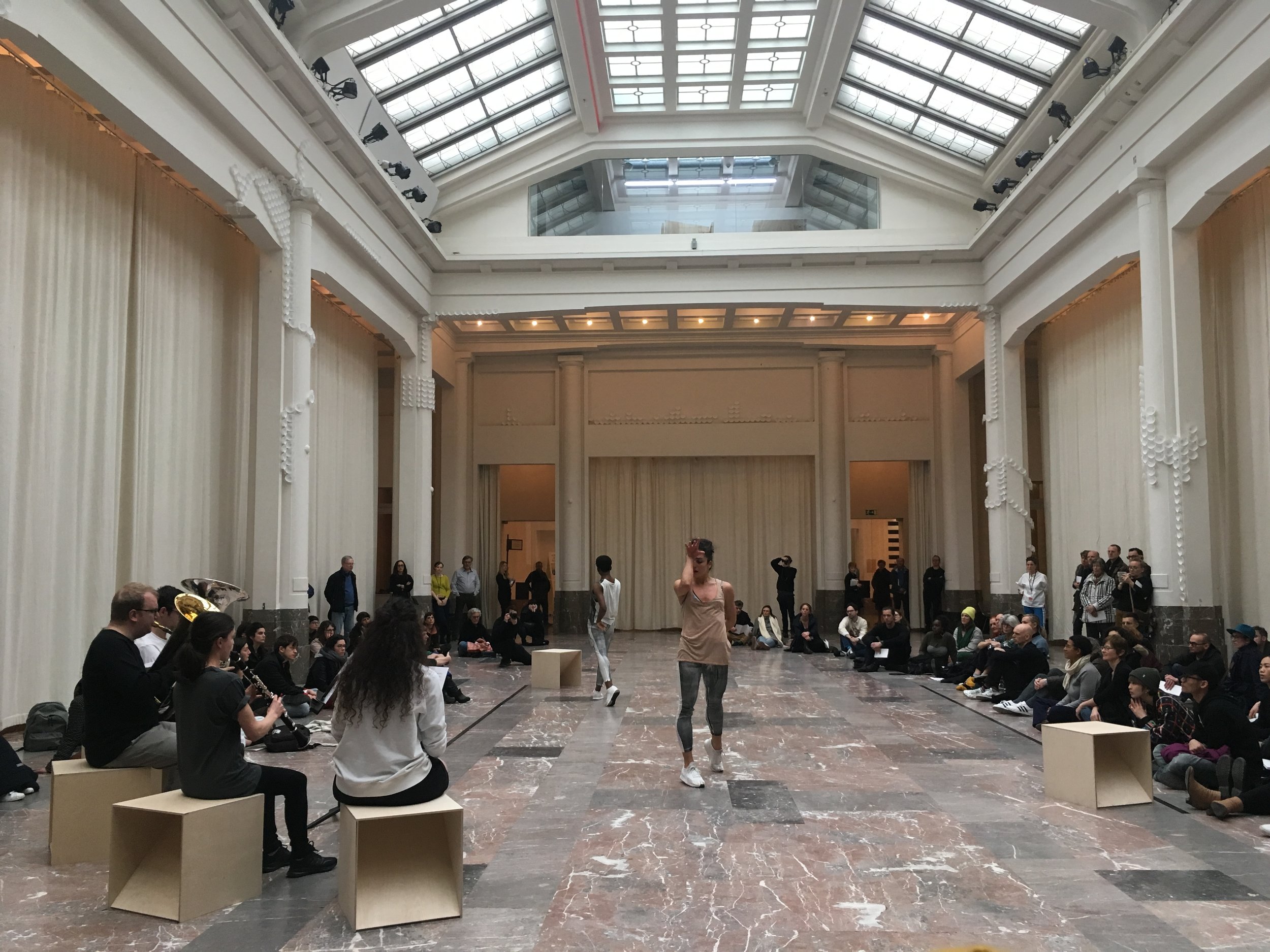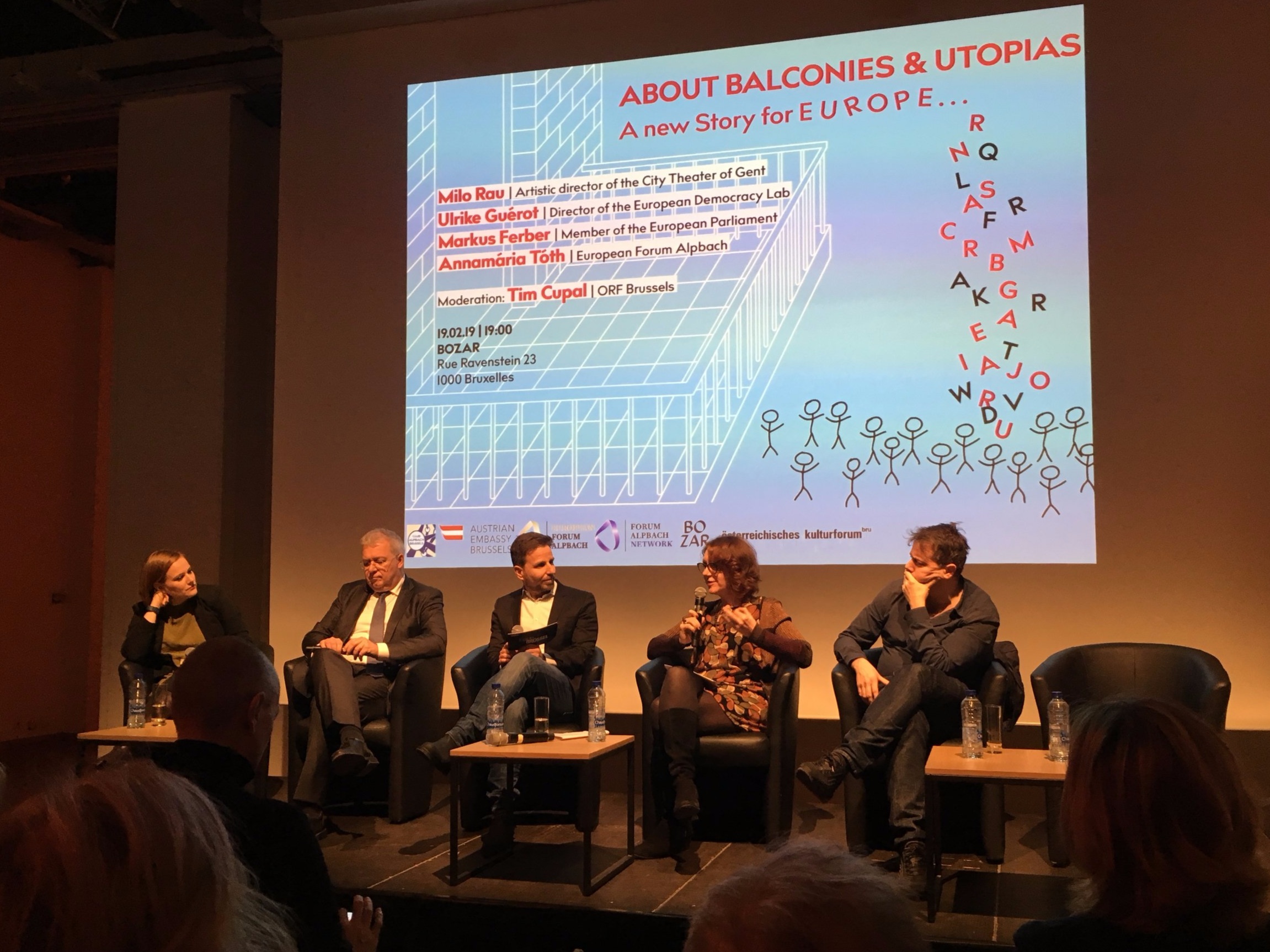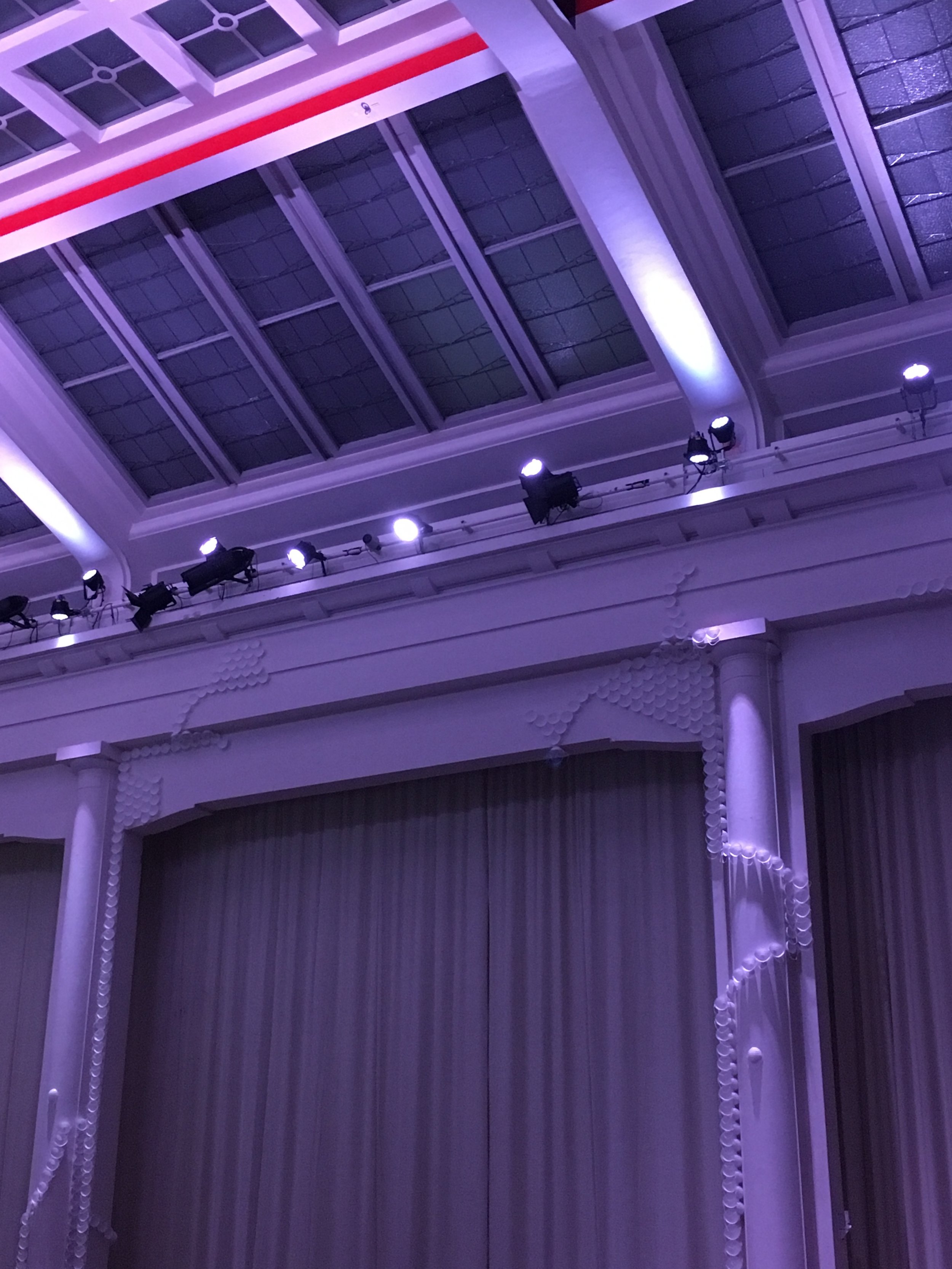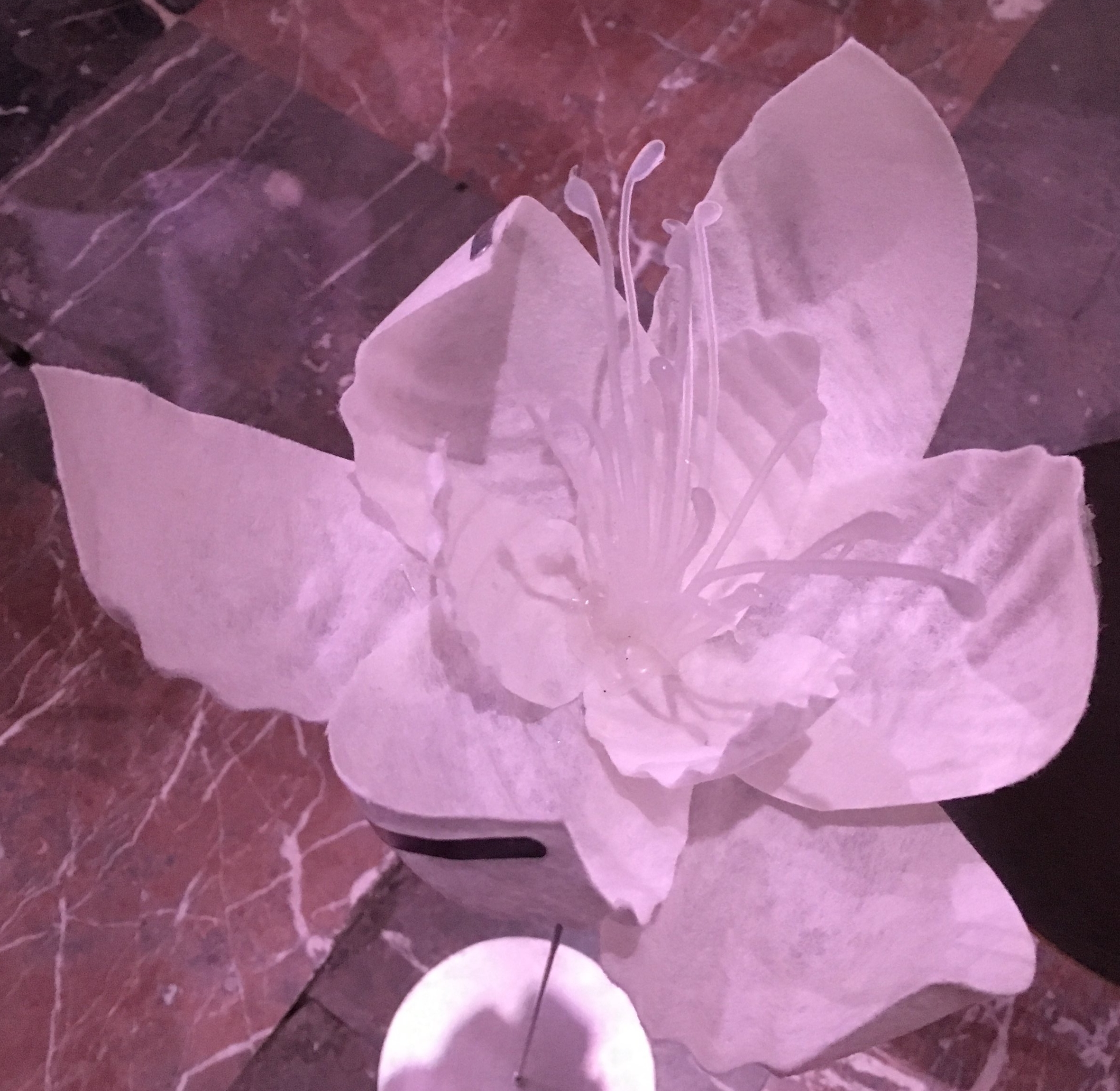Saturday 3pm at Bozar, the Performatik crowd is gathering in the Horta Hall to see The allegory of the painted woman, a performance by artist and choreographer Alexis Blake. Four musicians and the two dancer Nafisah Baba and Marika Meoli enter the stage. One performer starts with instructions “Magdalena, Anastasia, Cecilia, Salomé, Daphne, Venus, …” , all female characters of classical paintings. The other performer starts to take on the related positions. The oral instructions stop, the music starts and both dancers start to move synchronically according to the sound. The performers are very good, every move and all sound seems to be perfect, but I am not sure if the space provides the right setting. Even though the dancer’s outfits are perfectly fitting to Horta Hall’s marble floor, it may have been stronger in a setting which offers more contrasts, an exhibition space which shows some of the kind of women figures and their assigned roles, issues like gender, representation questions to reflect upon. I am not sure, but I liked this half an hour.
Wow* 10 days of The Brussels Biennial of Performance Art are already over again. It was an extremely broad and comprehensive program, as usual not enough time to see everything I wanted to, but happy about each single event I could make it to.
Looking already forward to 2021***
For the whole blog of the brusselsARTproject click here.
